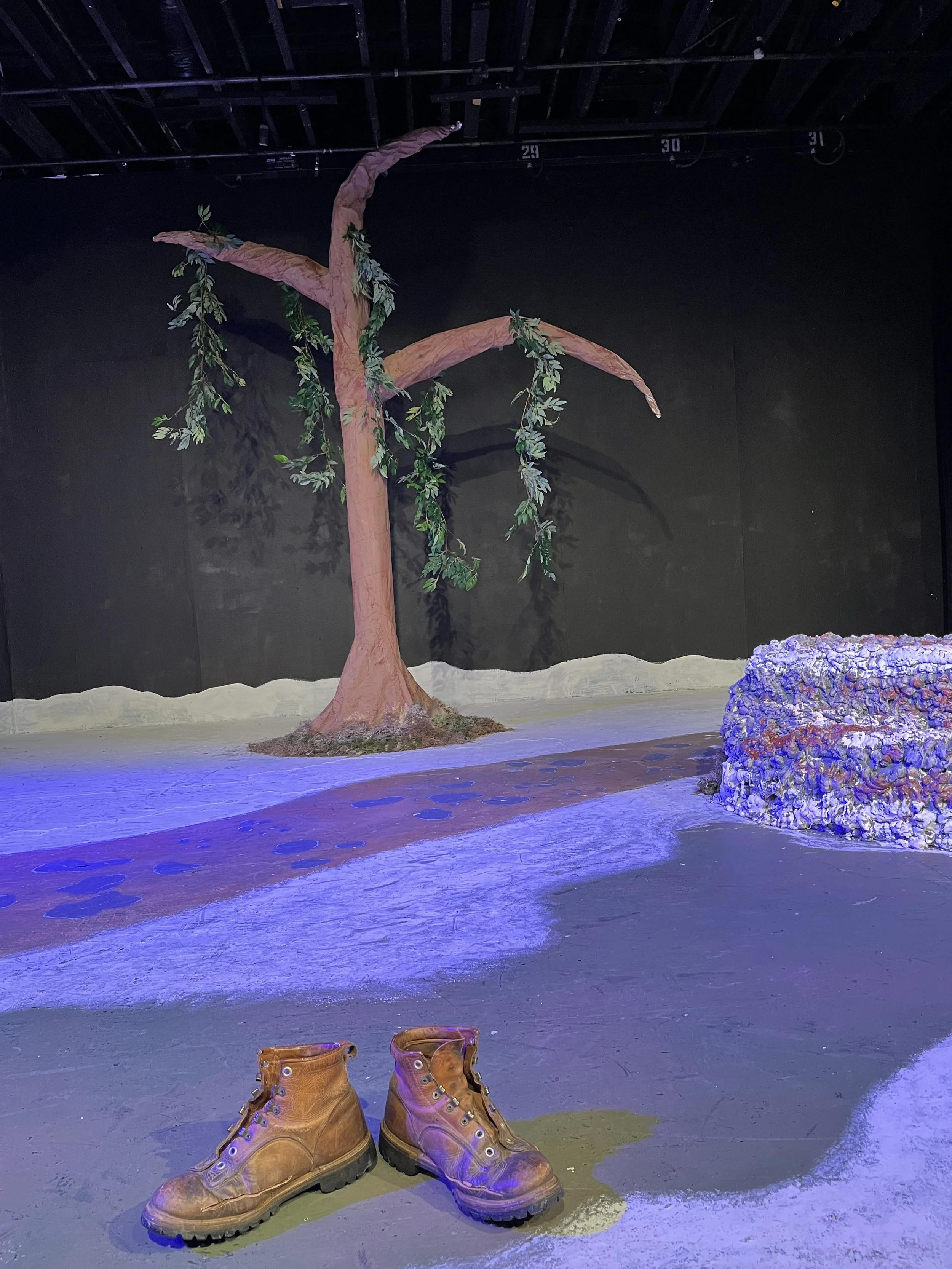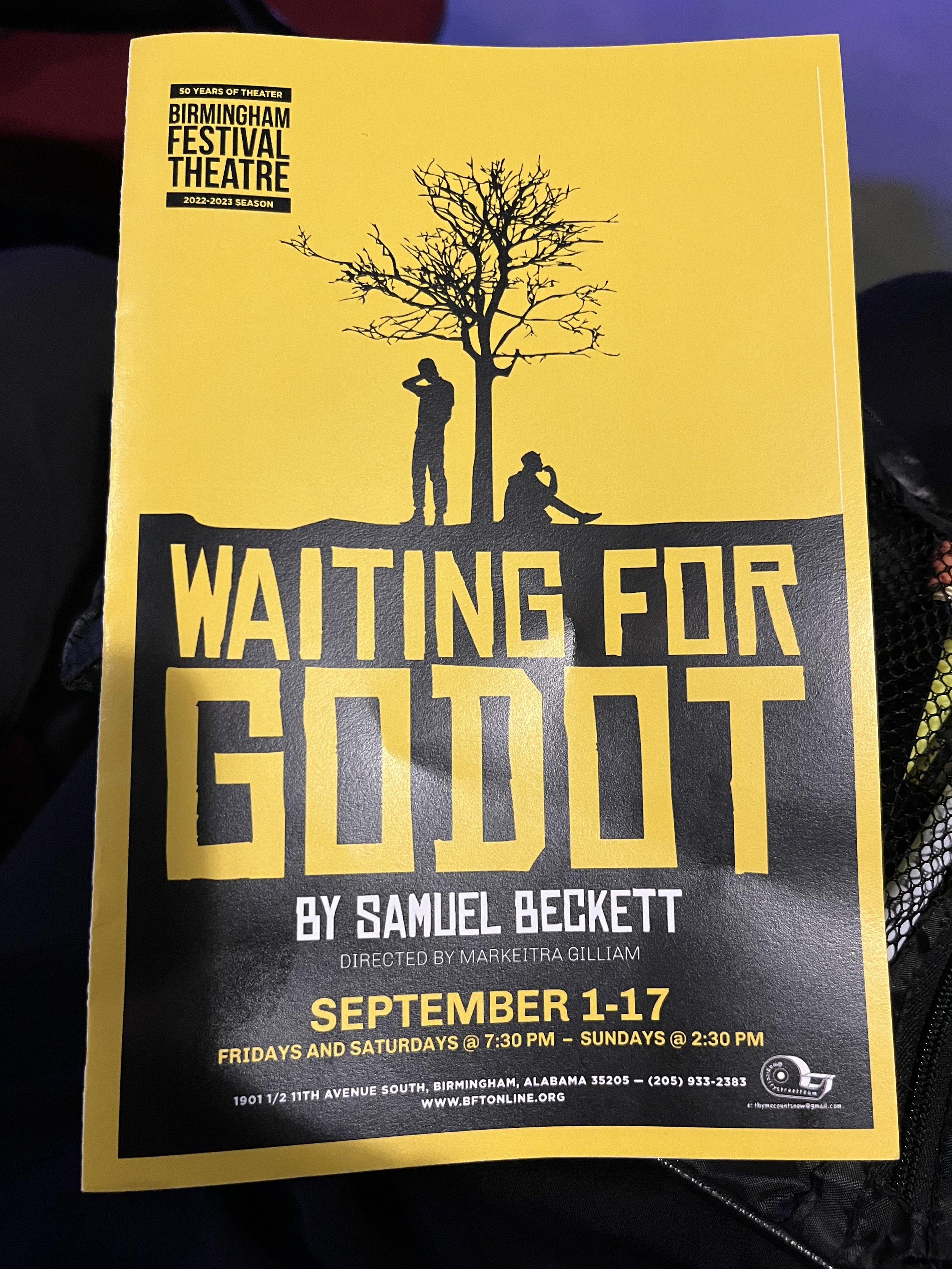Are We All Waiting for Godot?
Blog 50
From the March 18 entry in my book, Theatre Is My Life!
“Estragon: (having tried in vain to work it out). I'm tired! (Pause.) Let's go.
Vladimir: We can't.
Estragon: Why not?
Vladimir: We're waiting for Godot.”
Characters in Samuel Beckett’s Waiting for Godot
Tonight, as I was contemplating what to write about this passage, I read my horoscope in the Birmingham News, which said, “You’ll be waiting in a line of sorts. Instead of getting antsy, read the faces of the people around you.” The horoscope suggested to me imagining stories about these folks. It was good advice, because waiting (for Godot, or just wasting time, holding on, staying put until something happens) has never been one of my best skills.
I began to think, there are different kinds of waiting. Last night, tornadoes, once again, tore through Alabama. My daughter Elin had just persuaded me to get a weather radio “app” for my phone, which went off continuously all night long. I thought, “I am actually waiting for God, the Universe, Fate, or whoever to move this weather along.” I anticipated, uneasily, the end of the “midnight to 6:00 a.m.” tornado warning.
When I used to drive 35 minutes each way to work, I got hooked on listening to audio books by Eckhart Tolle. This exercise distracted me from the frequent stops and stalls of traffic on the expressway. Most of us don’t like to wait. We get anxious when stuck in traffic, stressed in long lines at the DMV, frustrated with a plane delay. We check watches. We grumble. We pace to dissipate some of our anger — unless we are in the car and then we can settle for listening to something enlightening.
Tolle suggests a good way to handle a wait — or anything out of my control: be in the moment. If held up by something, wait without “waiting,” discover what the stillness is for, understand that this moment of suspension may actually mean something in or to my life.
In Beckett’s play, Vladimir and Estragon wait and wait unceasingly and unsuccessfully for a character named Godot to arrive. Because the play never really explains who this Godot is, some people have speculated that the playwright was suggesting that humans wait for God who never shows up in their lives. Beckett once admitted, “It would be fatuous of me to pretend that I am not aware of the meanings attached to the word ‘Godot,’ and the opinion of many that it means ‘God.’ But you must remember – I wrote the play in French, and if I did have that meaning in my mind, it was somewhere in my unconscious and I was not overtly aware of it.” The French word for “God” is “Dieu” — but if you say, “Godot” just right, it can sound like Go-Dieu!
Whoever Godot is to Vladimir and Estragon, the characters interminably wait for someone. Thinking about the angst during their anticipation and yearning, I remember the advice of Eckhart Tolle. A very good practice for life might be to allow myself first to be in the moments of waiting, so that they become more than just waiting. And then, to melt into the stillness of the Universe to hear what is speaking through, in, and beyond the waiting.


